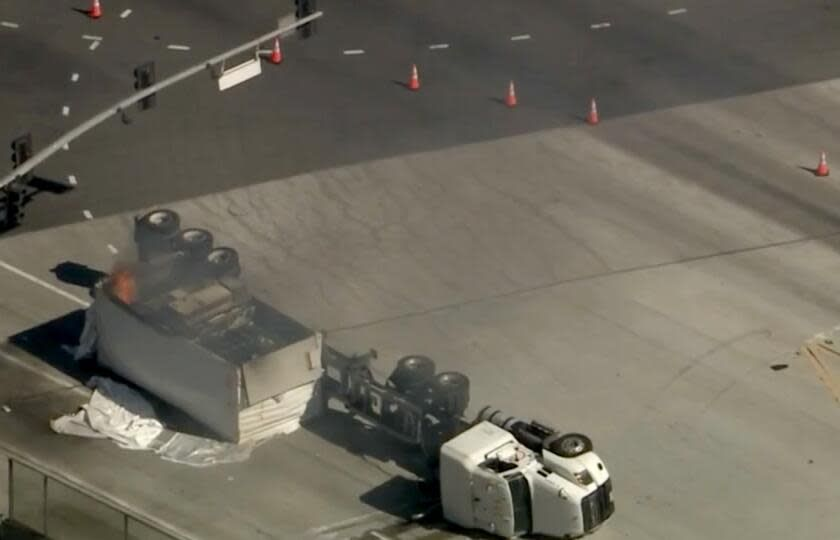Readers ask: Should we even use LI batteries in data centres?
Relatively low risk but wicket high impact.

It's Unfiltered Friday, and it looks like some of you are not done with lithium-ion battery fires yet.
Coincidentally, a container truck carrying lithium-ion batteries overturned on a highway in San Pedro, Los Angeles, just hours ago.
A battery exploded and the whole rig caught fire. Part of the freeway is now closed, and firefighters say they will let the fire burn out - estimated at 24 to 48 hrs.
Thankfully, there are no injuries.
Lithium-ion batteries on fire
We know that lithium-ion battery fires are almost impossible to put out once they start as it is self-oxidising, meaning they can burn without air.
As Eric F Harris wrote in a comment: "Maybe a low risk (of fire) but wicked high impact."
So why put them into data centres?
According to a respected veteran in the data centre industry:
- Valve-regulated lead-acid (VRLA) batteries developed a bad reputation when UPS makers went for low-quality options due to cost pressures.
- So along came lithium-ion batteries which promised bigger margins and an (apparently) cheaper TCO due to a lifespan of up to 15 years.
- These were sold without enough focus on the fire risk, using skewed TCO comparisons by adding battery monitoring systems to VRLA batteries - which they don't need.
Do you agree?
A cost consideration
At the W.Media - Global gathering last week, I spoke with a specialist whose firm offers laser detection equipment they claim can detect lithium-ion battery fires early enough to make a difference.
Unfortunately, he also noted that most customers lose interest the moment they start talking about the cost.
- In his view, lithium-ion batteries can be safely deployed in data centres with the right fire detection equipment (Though of course, he'll say that).
- Separately, I received an email from another vendor with a gas detection system that claims a 5-10 minute early warning.
I don't have the ability to determine if these solutions really work. But one thing's clear - Lithium-ion battery deployments aren't as cheap as they seem initially.
Should we use it in data centres
I'll point out that regulations continue to evolve. I just looked at the SCDF guidelines for energy storage systems (ESS):
- ESS must be at the same story as fire engine access.
- Ventilation must meet stipulated standards.
- Max stored energy per compartment.
These regulations are not retroactive, so there will be installations that don't conform.
So should we use lithium-ion batteries in data centres? I suspect the market will eventually be the judge.
What do you think? Look forward to hearing your thoughts.
